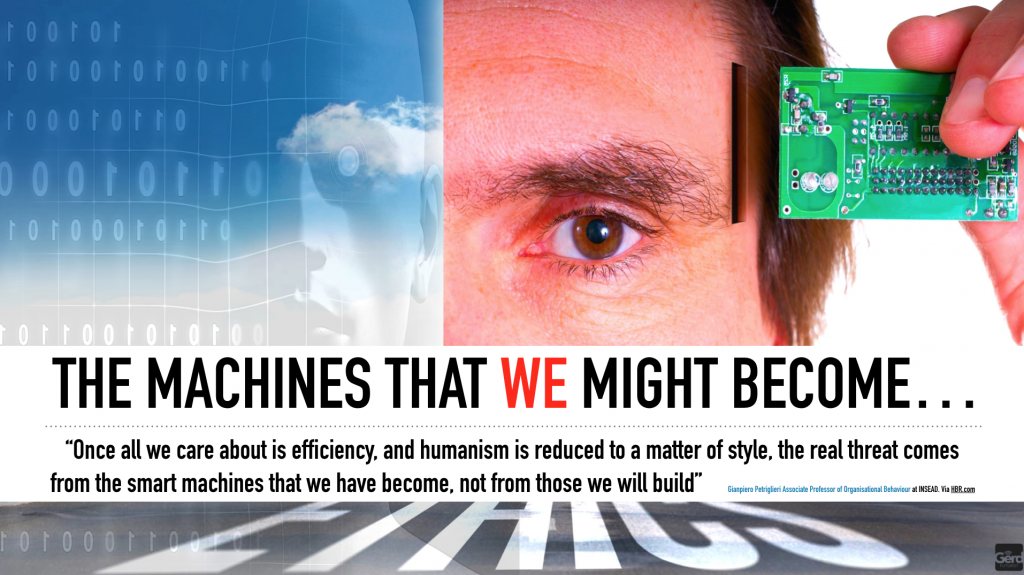I just ran across this HBR Blog post entitled “Technology is not threatening humanity – we are” which delivers a few key messages when looking at the future of technology and humanity (in red, below)
“Many of the advances business has brought about in the past century can be seen as a result of the tension between those two visions of how to organize labor, enhance productivity, and define success. That tension will stop producing much progress if all we are left with is Taylorism in Druckerian clothes. Once all we care about is efficiency, and humanism is reduced to a matter of style, the real threat comes from the smart machines that we have become, not from those we will build. Much like those old trains, we might not control the speed of technological advance, but we can still make plenty of choices about where we’re going. There is no going back, which makes it all the more important to consider what it means to move forward, rather than simply applauding or lamenting how fast we go.”
This post is one in a series of perspectives by presenters and participants in the 7th Global Drucker Forum, taking place November 5-6, 2015 in Vienna. The theme: Claiming Our Humanity — Managing in the Digital Age.
Gianpiero Petriglieri is Associate Professor of Organisational Behaviour at INSEAD, where he directs the Management Acceleration Programme, the school’s flagship executive programme for emerging leaders. He also has a Medical Doctorate and a specialisation in psychiatry. You can find him on Twitter @gpetriglieri.

